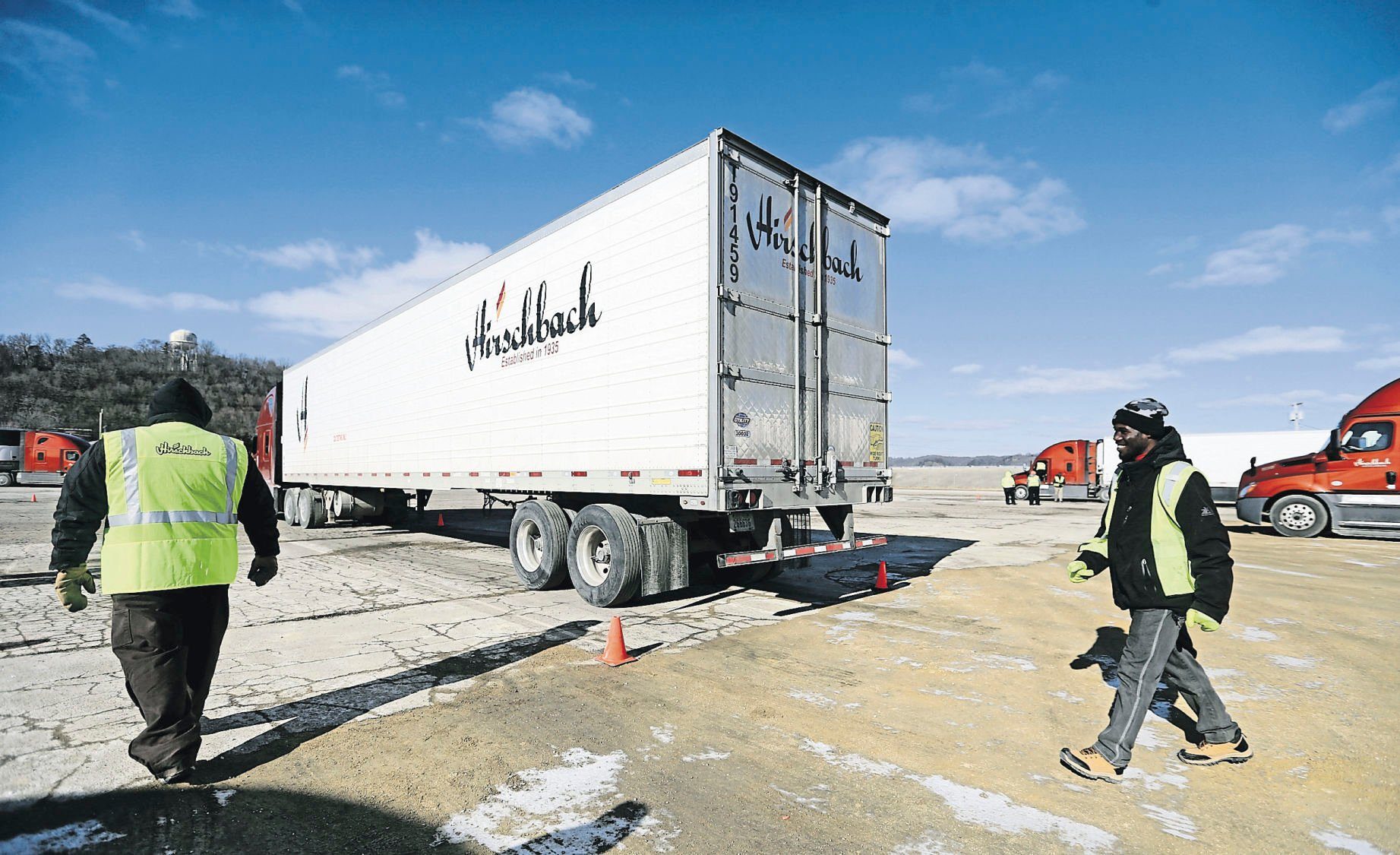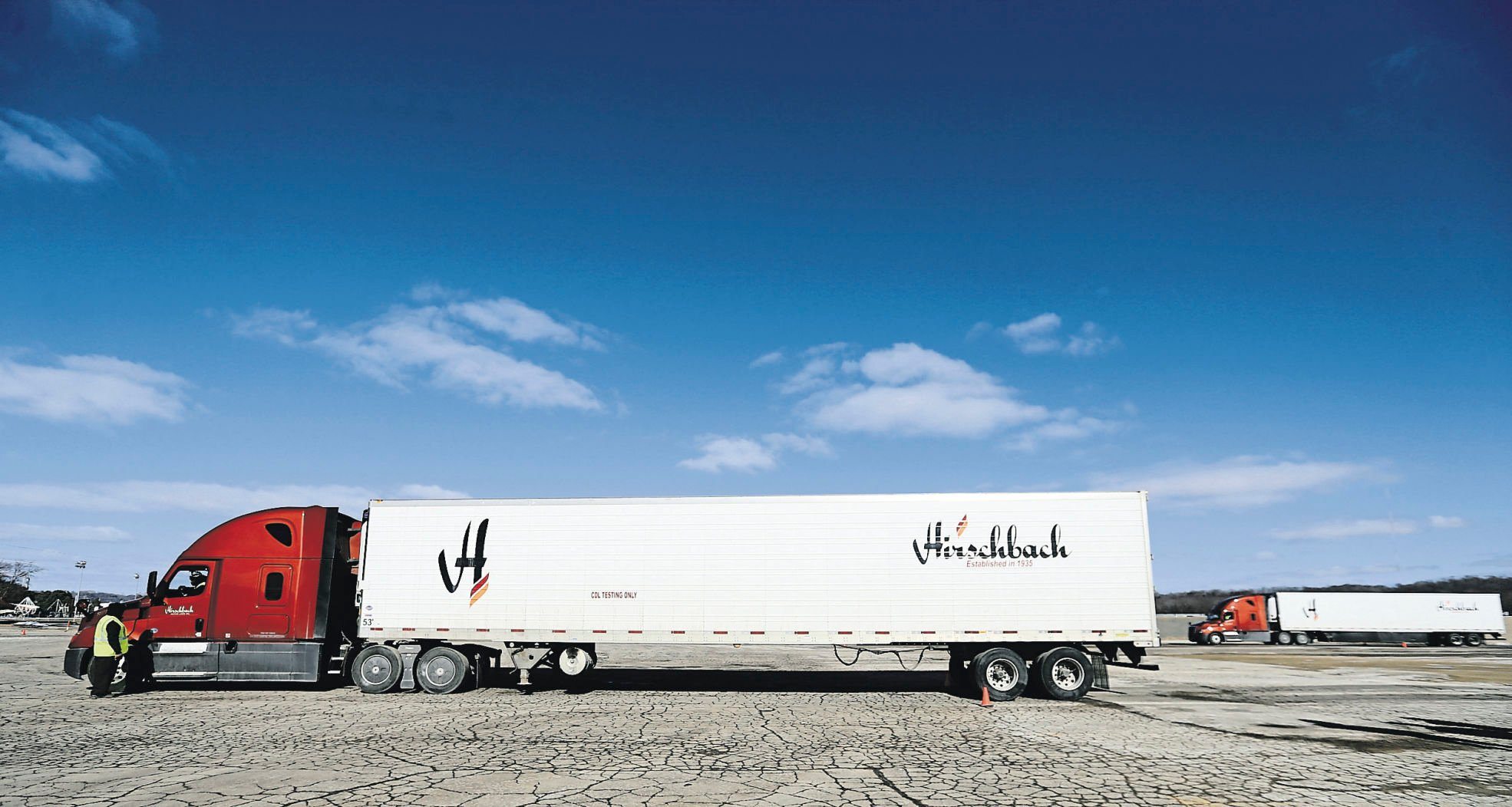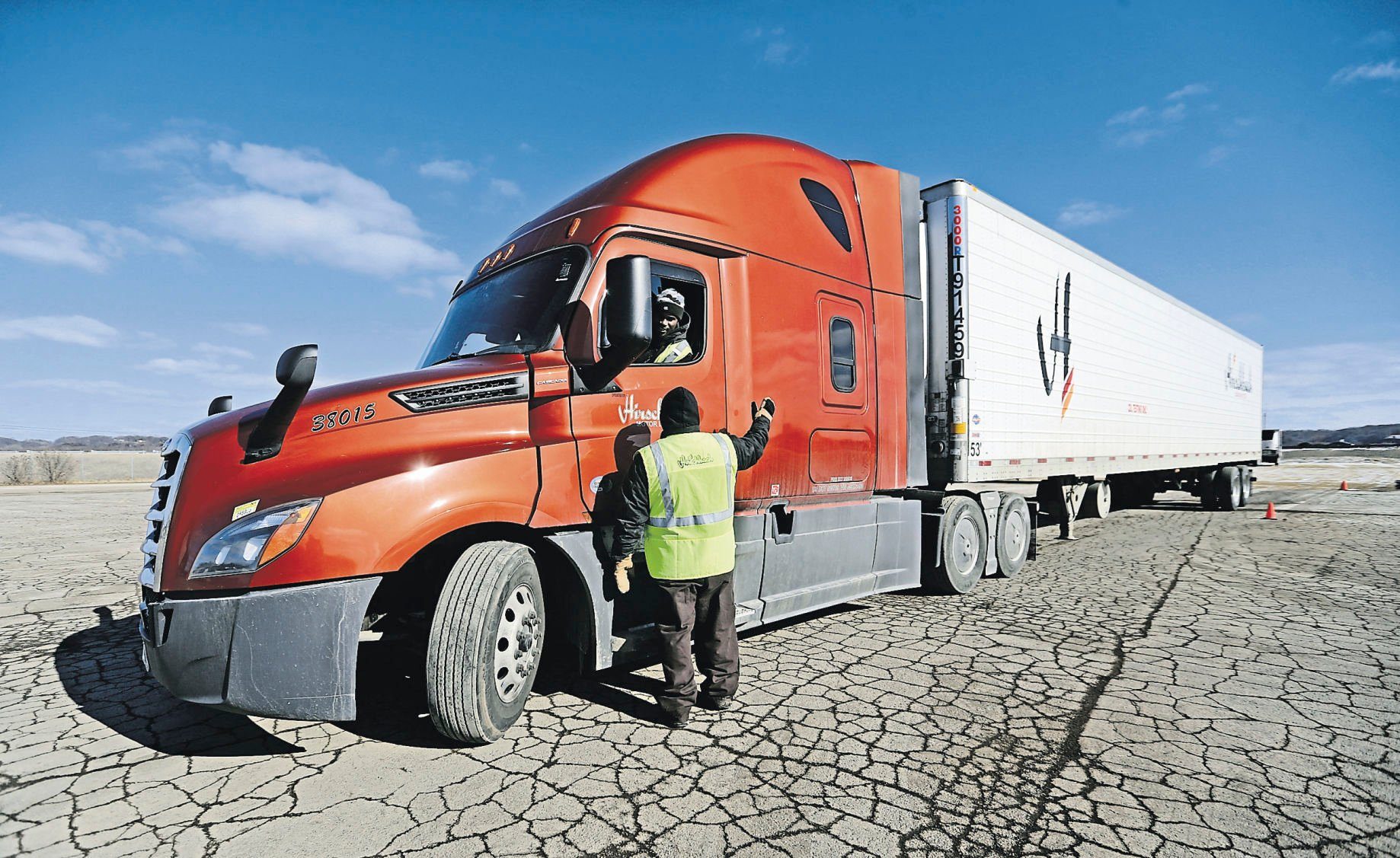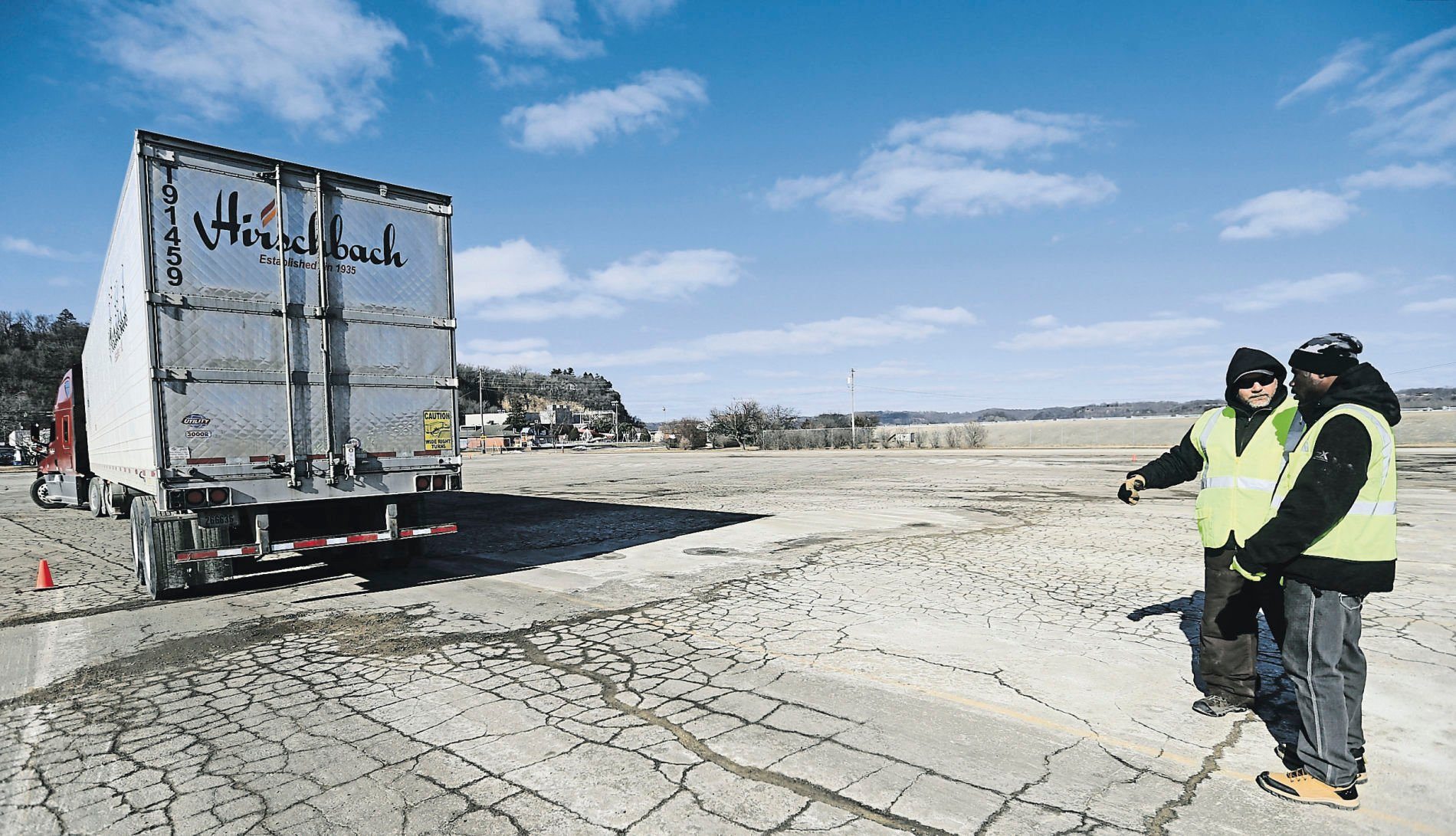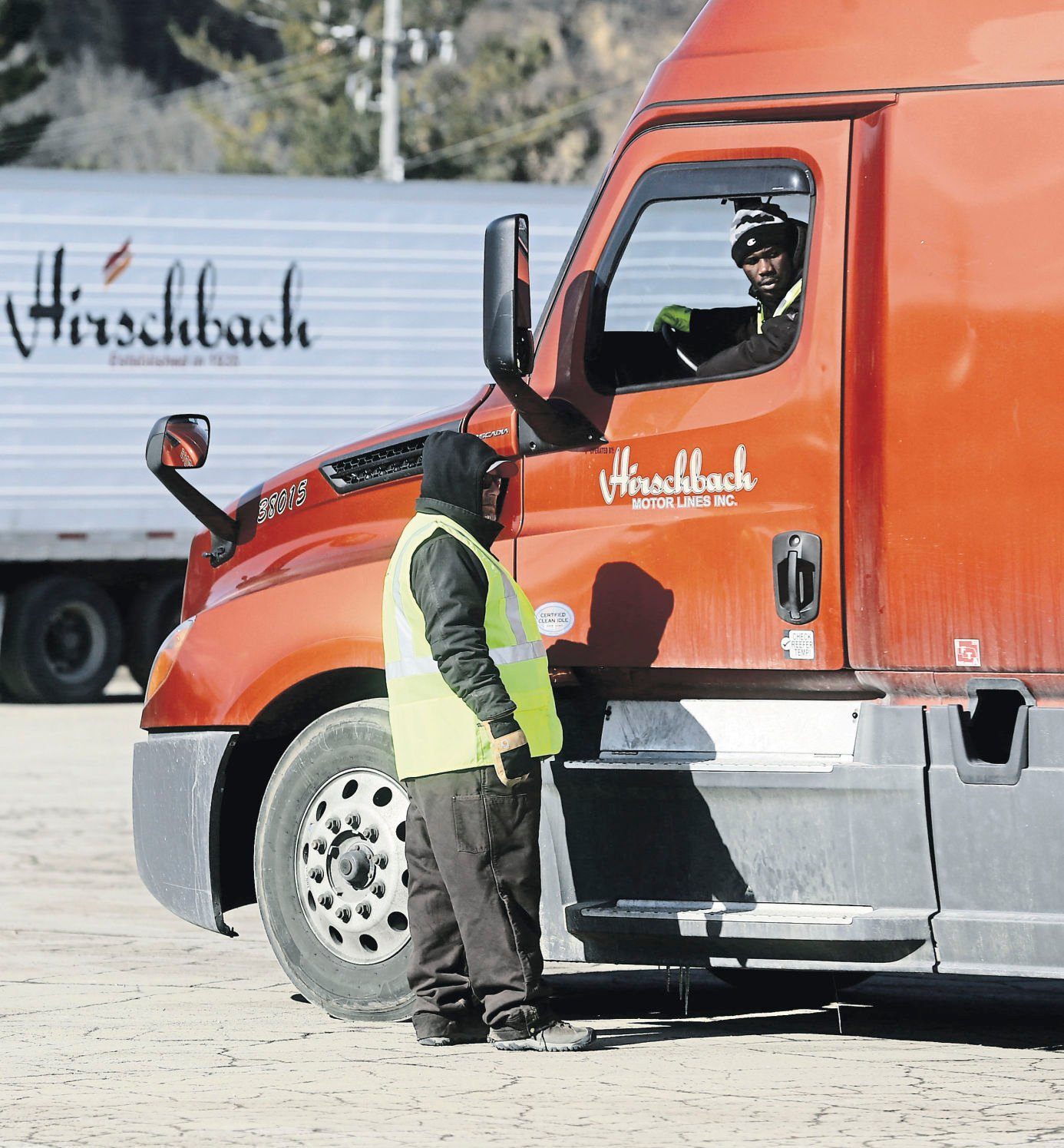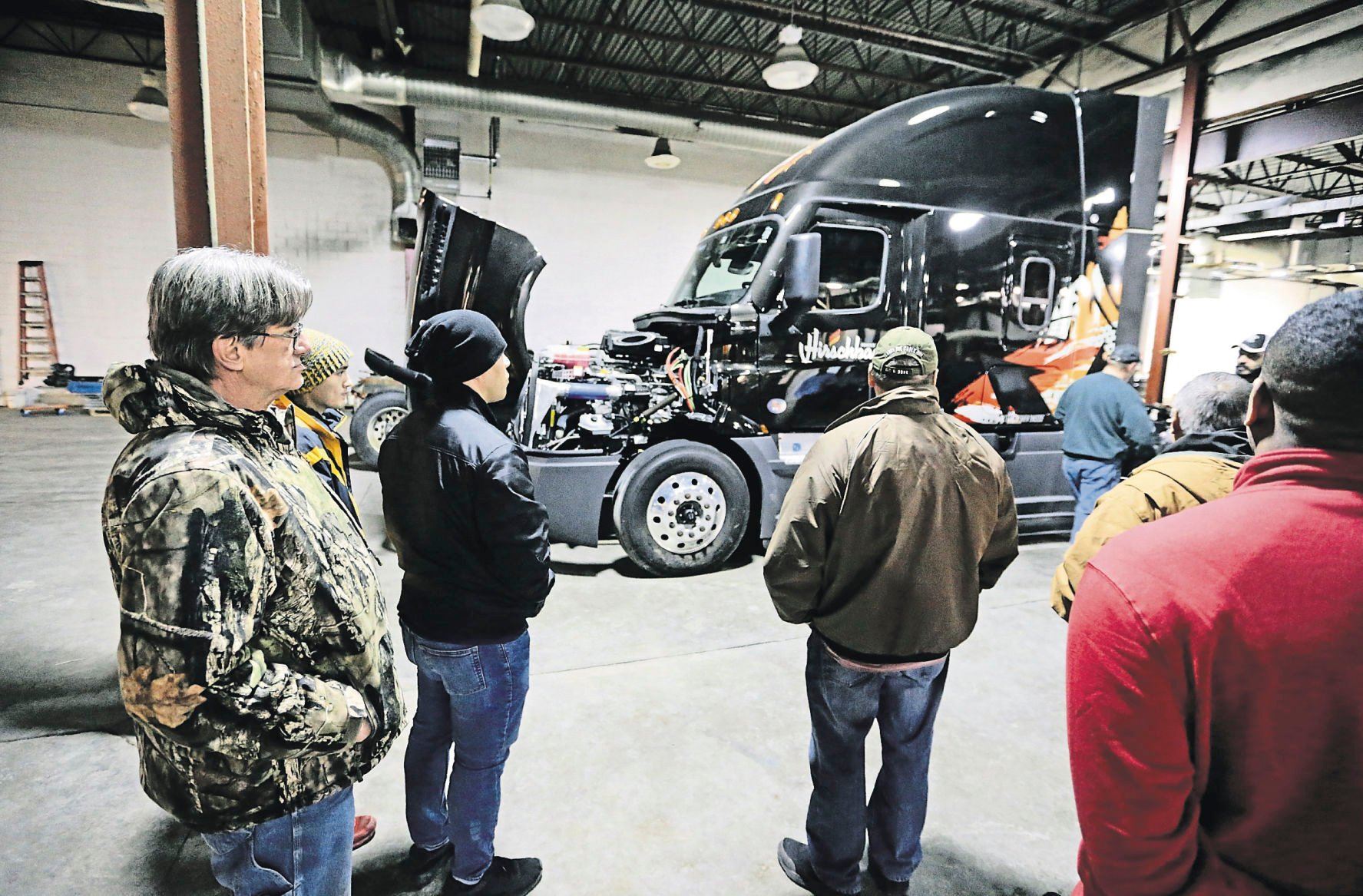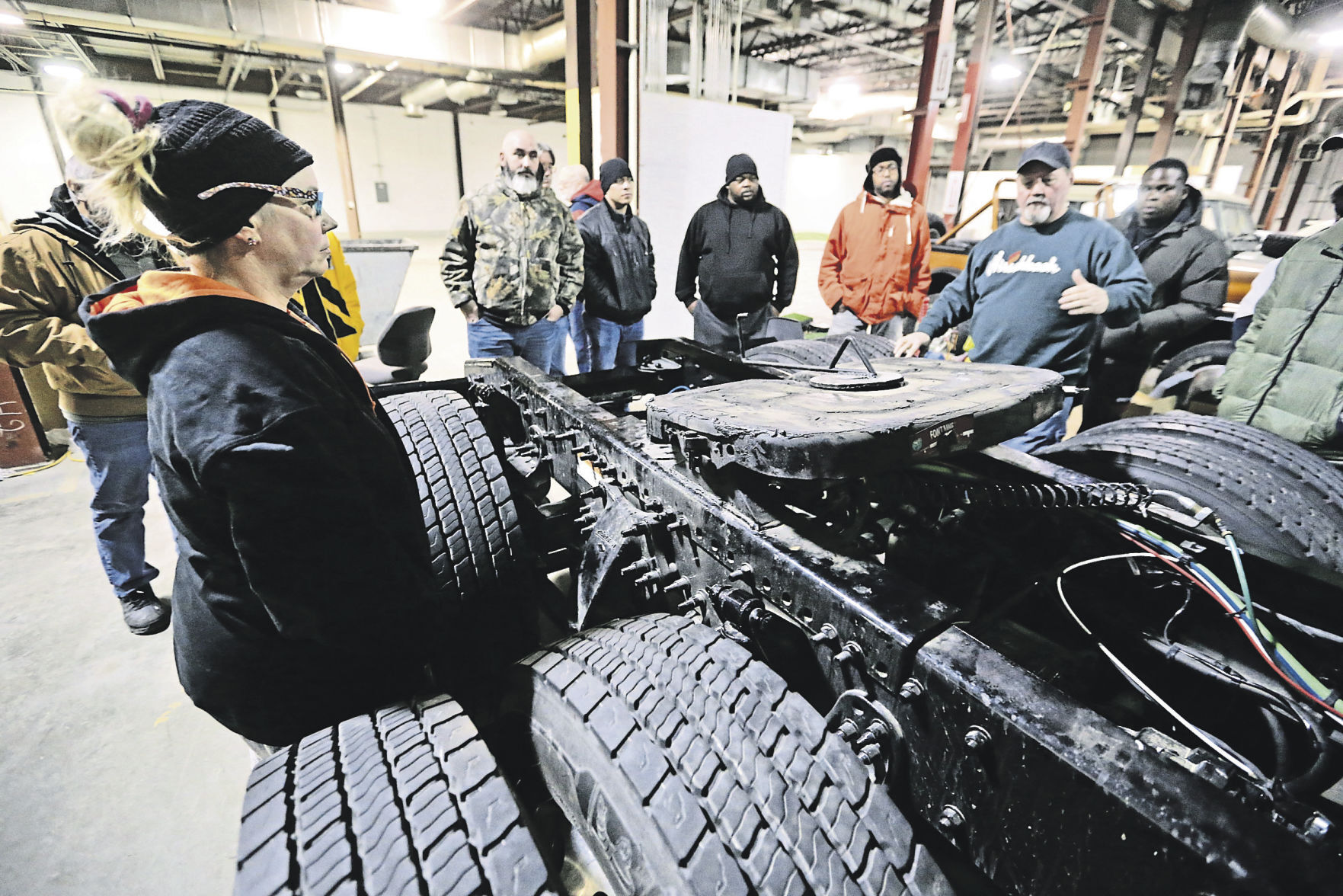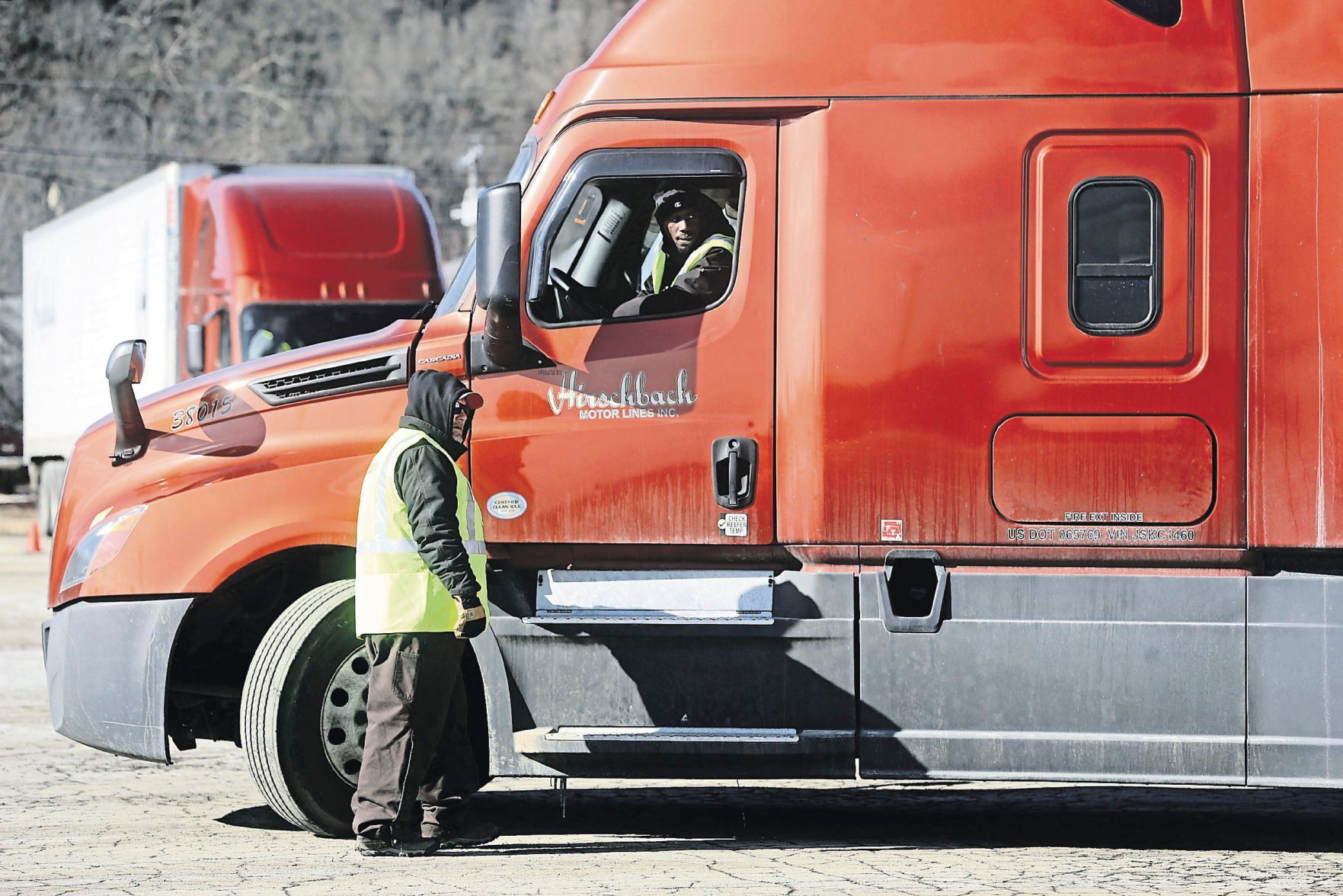Mohammed Keita’s brow furrowed with concentration as he carefully checked his rearview mirror. With the encouragement of his instructor, Marty Funke, Keita successfully maneuvered his semi-tractor trailer between a set of four orange cones.
Just down the street, a group of about 15 students sat in a classroom at Hirschbach Motor Lines’ Kerper Boulevard facility in Dubuque, taking notes as they thumbed through copies of an atlas.
“We’re learning how to read maps and how to do trip planning, how long it’s going to take you to get to (the location to) pick up your load and how far it is to drop it off and where your next load is going to be,” Traci Kelly said.
She, Keita and their peers are students in Hirschbach’s commercial driver’s license training program. The program, launched about a year ago, has helped the company weather an ongoing trucker shortage and prepare new drivers for a life on the road.
“The reason we started doing it was primarily because of the labor issues,” said Brian Kohlwes, Hirschbach’s general counsel and chief risk officer. “The truck driver shortage has been around for decades.”
Hirschbach President Dan Wallace said the COVID-19 pandemic “magnified” this existing shortage for several reasons. Many drivers bowed out of the industry either temporarily or permanently due to health reasons and age. At the same time, new truckers struggled to obtain their commercial driver’s licenses with some state departments and technical schools closed during the pandemic’s early days.
“That’s what drove us to open our own facility,” Wallace said.
So far, a few hundred students have graduated from the program, and Wallace estimated Hirschbach adds about 25 students per week.
The 10-week program begins with four to five weeks of classroom study, mechanics and inspection lessons and behind-the-wheel practice. Hirschbach has about 25 instructors who lead the program.
As a training ground, Hirschbach leases the former Bowling and Beyond parking lot from the City of Dubuque. It was there that Keita was perfecting his backing technique. Students also take to the roads of Dubuque in one of the company’s 26 designated training trucks.
After completing initial training, participants return to their home state to receive their CDL, then come back to Hirschbach for an additional 200 hours of on-the-road practice with a trucker who has graduated from Hirschbach’s “train the trainer” program.
“That’s where the real education starts, when they’re out there on the roadway with a more experienced driver,” Kohlwes said.
He said participants pay no tuition up front. In fact, they are paid around $600 weekly during their coursework, with room and board costs also covered. Once students graduate, they are asked to stay with Hirschbach for at least nine months, during which time their tuition costs are gradually deducted from their regular pay.
“In nine months, they’re debt-free from their tuition,” Kohlwes said.
Kelly, of Joliet, Ill., holds a Class B CDL. This allows her to drive vehicles such as dump trucks and “straight trucks,” or those with a fixed trailer. She enrolled in Hirschbach’s program to upgrade that license to a Class A CDL, which will let her drive a wider variety of large tractor trailers.
“I’m going to take my husband and my dog with (me), and we’re going to go learn about the United States,” the 53-year-old said.
Trondell Frazier, 40, also seeks to upgrade his Class B license to a Class A. A resident of Greensboro, Md., he learned about Hirschbach’s program during a casual conversation with another trucker at a laundromat.
“All the instructors here are nice, and they make sure you know what you’re doing so that when you go out on your own, there’ll be no slip-ups,” he said.
Jordan Weaver, 21, of Holy Cross, Iowa, said he looks forward to the travel opportunities a career in trucking will offer.
In a spiral-bound notebook, Weaver took notes detailing how to read an atlas and track his hours in a driver’s log.
“When we actually start trucking, we’ll record when we’re driving versus when we’re sleeping or loading,” he said. “We learn all the rules and regulations so we can be safe on the road.”
Other area transportation companies have partnered with existing CDL schools to recruit and train drivers.
Jon Stenzel is director of training with Foodliner, a trucking division owned by Dubuque-based company McCoy Group, which partners with nine CDL programs nationwide.
Each CDL program sends its top students to be interviewed and, if all goes well, hired at one of McCoy Group’s subsidiaries, such as Foodliner, Quest Liner and W.W. Transport. Those employees then return to their CDL school to complete hands-on driver training before launching their career with McCoy Group.
Stenzel said the partnership allows entry-level drivers to gain experience, which often translates into a strong retention rate.
“There’s more opportunities for drivers now, so they can job shop a little bit more, but we just try to utilize all our tools that we have,” he said. “… We’ve really seen a huge loyalty from these folks because we give them an opportunity where sometimes, no one else does.”
At Tucker Freight Lines in Dubuque, which employs more than 200 truckers, all drivers must come in with at least two years of experience.
“As a smaller company, you have a higher risk of bringing drivers on with less experience,” said Shuree Behr, director of recruiting and marketing with Tucker Freight Lines.
Behr said Tucker Freight Lines relies on a strong driver referral program, as well as targeted advertising such as Facebook ads, to recruit new drivers.
“It’s probably one of the more tough years in recruiting, but we’ve been very fortunate,” she said. “We have a great team in our recruiting department.”
Although Hirschbach officials know all the truckers they train won’t stay with the company permanently, program retention has so far been promising.
“We really want to be able to grow our own (pool of drivers) organically, and so far, our retention with our students has been very good,” Wallace said. “Further downstream, we would like at least 50% of our weekly driver needs to be coming through our own CDL school.”



